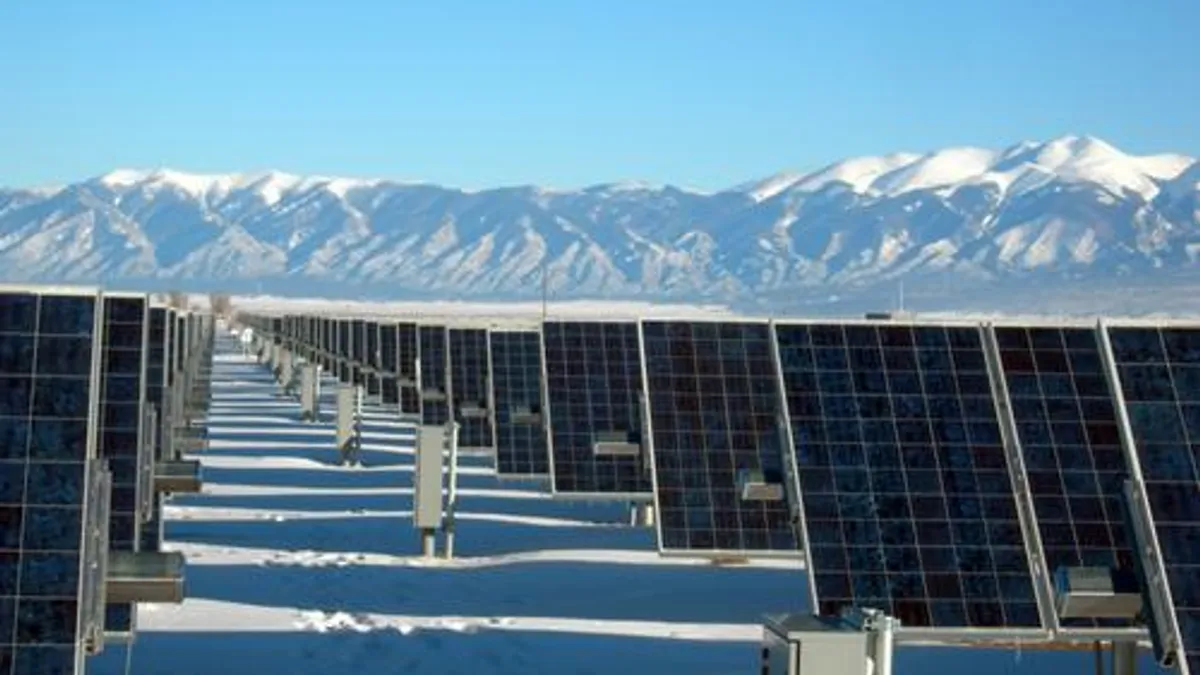Dive Brief:
- Xcel Energy CEO Ben Fowke listed several state legislative efforts affecting utility subsidiaries during the company's Q4 earnings call on Thursday, referring to bills intended to support clean energy deployment as "just that tool in the toolbox."
- Present bills in Colorado, Texas, Minnesota and other states regarding advanced metering infrastructure, utility financial mechanisms and renewable portfolio standards are not expected to significantly drive capital expenditures. The low price of renewables are already driving Xcel's transition to cleaner generation while protecting customers' bills, Eric Beaumont, equity research analyst and director at Barclays Capital, told Utility Dive.
- In the short term, the utility holding company has penciled out economically profitable projects to expand its renewable generation without further legislative incentives. However, Xcel is working toward ambitious company-wide goals to eliminate all carbon emissions by 2050, which will need more favorable legislative and regulatory environments to expand clean energy resources.
Dive Insight:
Xcel is a leader in the U.S. power sector's transition to clean energy. The utility plans to retire 50% of its coal-fired generation capacity from 2005 to 2026, replacing it with a mix of renewables, energy efficiency and natural gas.
"Because they're undertaking significant efforts to decarbonize and switch to renewable investment and because most of those efforts are actually driving down cost to the customers... they're not dependent on legislation to be able to do this for the benefit of the customer," Beaumont said.
Xcel plans to add more than 11 GW of wind to its system by 2021. The company told Utility Dive in November that it expects to double solar generation by 2022.
While Xcel is following relevant state legislatures, its subsidiaries also work to achieve renewable deployment by keeping bills flat through their own cost-cutting instead of anticipated state-level policies.
"[B]ased on the current price construct, they have several years of runway before they would need ... some form of legislation to be in place" that would enable more investment in Xcel's carbon-reductions, Beaumont said.
Instead of impacting Xcel's five-year plan, state bills backing clean energy development would affect "their ability to get to the 80% carbon reductions by 2040 and the 100% carbon free by 2050," Beaumont said.
Xcel is following bills in New Mexico and Colorado about securitization, a financial mechanism through which investor-owned utilities can recover costs by issuing bonds, ultimately saving customers' money through the lower financing costs of the bonds. Utilities can use securitization to increase the price proposition of clean energy initiatives.
"[Legislation] has to be written in a way that technically you can actually do the bond programs off of it. And then, two, one of the things we'd be looking at is things like utility ownership of the generation that's been securitized. If those things come together, and remember, in Colorado at least, it's a voluntary tool, then it might be something we look at," Fowke said, answering an analyst on the quarterly call.
The importance is that "we've achieved the goals of securitization through our own efforts," Fowke added.
In Texas, Xcel is following advanced metering infrastructure (AMI) legislation that would allow companies outside of the Electric Reliability Council of Texas to receive the same regulatory treatment.
"Concurrent recovery, that's particularly important," Fowke said, adding that while "the recovery would be great," the bill wouldn't spur more deployment than already planned. Xcel forecast its company-wide expenditures to include about $80 million for AMI.
Xcel is also tracking the potential expansion of New Mexico's renewable portfolio standard and legislative efforts to address community solar gardens in Minnesota.















